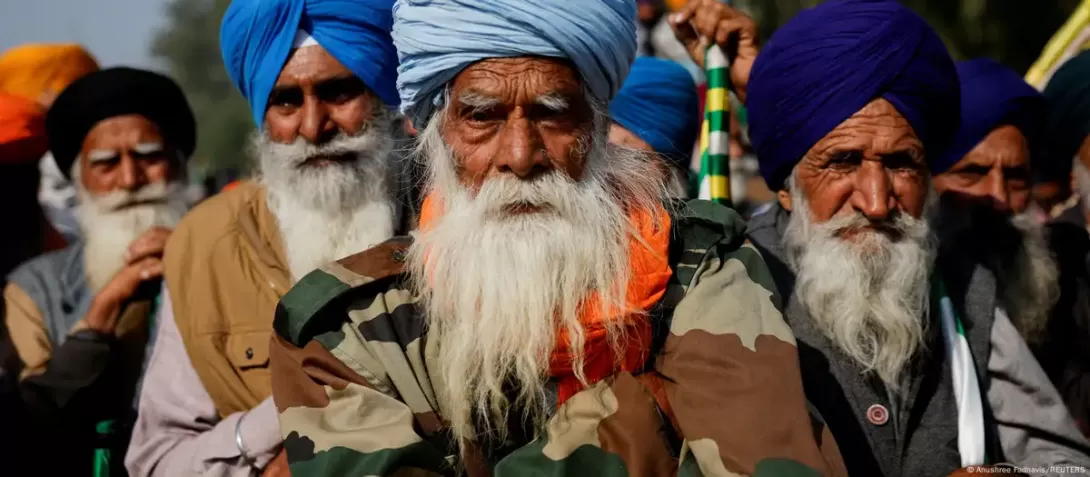The Indian government has delayed a crucial meeting scheduled for May 4 with farmer leaders, citing the need for the inclusion of Punjab state government officials. This decision comes after significant tension, with farmer representatives threatening to boycott the talks if Punjab's involvement was confirmed. The dispute stems from the controversial eviction of farmers at border points earlier this year, deepening the divide between the farming community and the Punjab government. While the Centre stresses the importance of state representation in these discussions, Punjab's leadership has clarified it will not participate.
Centre Postpones May 4 Meeting Amid Tensions with Farmers
On Thursday, the Indian government announced the postponement of the highly anticipated May 4 meeting with farmer leaders, a critical dialogue that aimed to address ongoing agricultural issues. The delay stems from a disagreement over the participation of Punjab government representatives in the discussions. The Centre had hoped to involve Punjab officials in the meeting, but farmer organizations have made it clear that they would not engage with the state’s representatives due to a longstanding grievance related to the eviction of protesting farmers earlier this year.
In a communication to farmer groups, Union Agriculture Ministry Joint Secretary Puran Chandra Kishan highlighted the importance of involving state governments in discussions, given their integral role in India’s federal structure. However, the farmers' concerns about the Punjab government’s involvement remain unresolved, leading to the postponement of the meeting.
Farmers’ Objections to Punjab Government Participation
The dispute over state government participation can be traced to an incident in March 2025, when Punjab police evicted protesting farmers from the Shambhu and Khanauri border points. This action has since sparked widespread resentment among the farming community, particularly against the Punjab government. Farmer leaders, including Jagjit Singh Dallewal, have argued that the state’s involvement in the talks would undermine the trust between the farming community and the government. Dallewal made it clear that if the Centre insisted on Punjab’s participation, the farmers would be compelled to boycott the upcoming meeting.
The Samyukta Kisan Morcha (SKM) and the Kisan Mazdoor Morcha (KMM), two influential farmer organizations, formally communicated their objections to Union Agriculture Minister Shivraj Singh Chouhan on April 27, stressing that the Punjab government’s inclusion would prevent productive discussions.
Centre’s Position on Including the State Government
In response to the farmers' objections, Kishan wrote a letter emphasizing the Centre's stance on involving state governments in matters of national importance. He argued that in a federal democracy, the cooperation of state governments is vital for addressing issues that affect both the state and national levels. Kishan’s letter also urged farmer groups to reconsider their position and to allow Punjab’s participation in the dialogue, suggesting that this inclusion would lead to more comprehensive and effective discussions.
Despite the Centre’s attempts to justify the state government’s involvement, the farmer organizations have maintained their position. In their view, the Punjab government’s recent actions have alienated the very constituency they aim to represent, leaving little room for constructive dialogue with the state.
Punjab Chief Minister’s Response
In the wake of the escalating tensions, Punjab Chief Minister Bhagwant Mann weighed in on the matter, confirming that neither ministers nor government officials from Punjab would participate in the upcoming meeting. Mann stated that the farmers’ demands were central to the federal government’s responsibilities and suggested that the farmer leaders engage directly with the Centre to resolve their issues. He also emphasized that the Punjab government had no objections to the farmers’ demands but had no role to play in the negotiations at the national level.
Mann’s stance further complicates the situation, as it reflects the deepening divide between the Punjab state leadership and the farming organizations. With both the Centre and the Punjab government maintaining opposing views, it remains unclear how the situation will unfold and whether the dialogue can proceed smoothly in the future.
Implications for the Agricultural Sector and National Dialogue
The postponement of the May 4 meeting raises important questions about the future of agricultural reform discussions in India. While the Centre’s move to include state governments is grounded in the principles of cooperation and federalism, the farmers’ strong objection to Punjab’s involvement highlights the ongoing challenges in bridging the gap between various stakeholders in the agricultural sector. The situation reflects broader tensions within India’s political landscape, where local and national interests often clash.
Moreover, the delay further complicates the already strained relationship between the farming community and the government, especially in light of the ongoing protests and the unresolved issues around farm laws. If the dispute is not resolved, it could lead to further delays in implementing key reforms and addressing the core issues facing Indian agriculture.
Conclusion: The Road Ahead
As the Centre defers the May 4 meeting, the question remains whether the government can find a middle ground that satisfies both the farmers’ demands and the need for state government participation. While the Punjab government has distanced itself from the negotiations, the farmers are determined to ensure that their grievances are heard and addressed without interference from local authorities.
The unfolding situation will likely have significant consequences for the future of agricultural reforms in India. The outcome of this dispute will not only shape the immediate trajectory of farmer-government relations but also influence broader political dynamics in the country. As the Centre continues to engage with farmer groups, it will need to carefully navigate the complexities of federalism and maintain an open channel of dialogue to resolve the pressing issues in the agricultural sector.

Comments